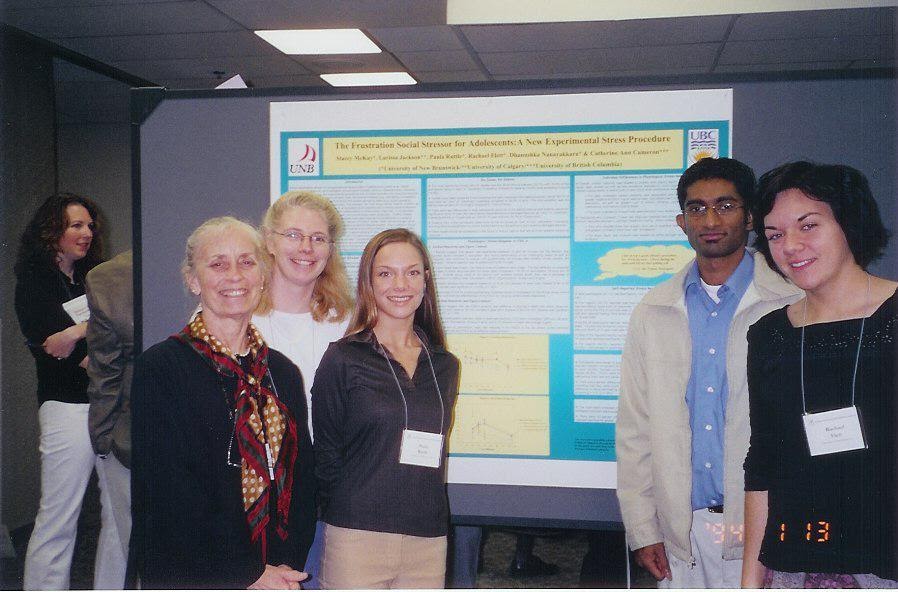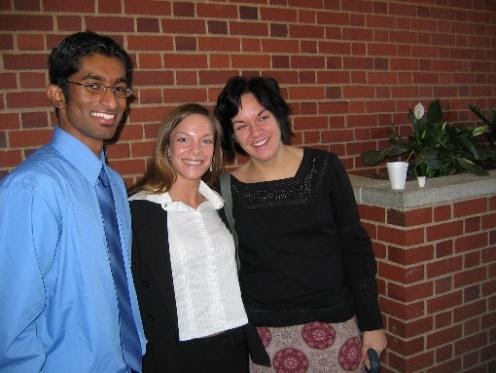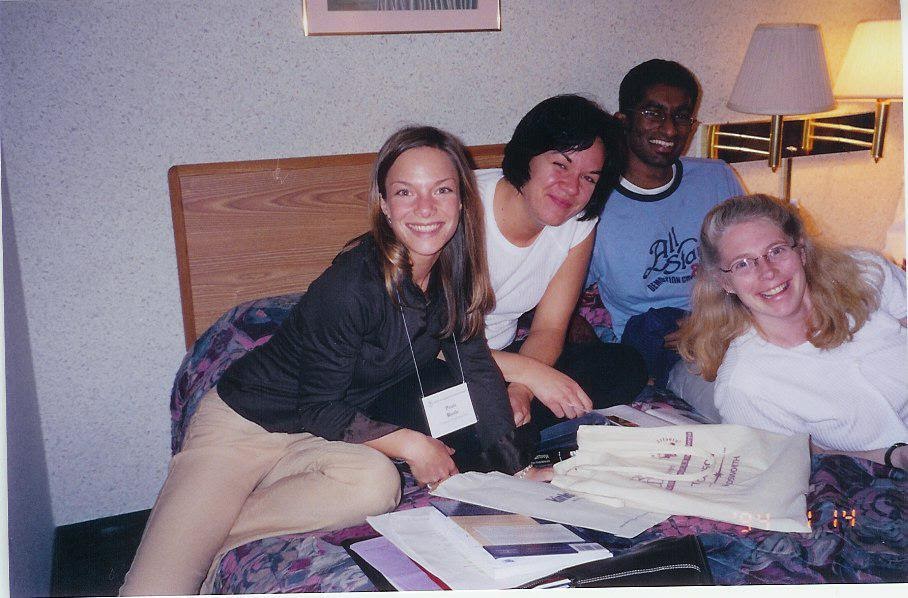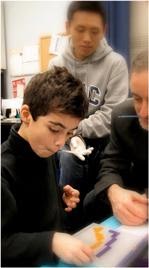|
|
Physiological and psychological responses to a psychosocial stressor
Adolescents:

SRCD 2005

UNB Honours Graduation 2005

Ruttle, Flett, Nanayakkara & McKay, 2005
This research has been generously funded by MindCare New Brunswick and the Human Early Learning Partnership at the University of British Columbia. We have been fortunate to have colleagues like Elizabeth Susman at the Pennsylvania State University, Joanne Weinberg in Anatomy at UBC, and Katherine Wynne-Edwards, Veterinary Science, University of Calgary, for authoritative consultations when our expertise fails us.
-
Pollak, K.M., Shao, S., Knutson, J.M., Gill, H., Lee, Y-V., McKay, S.L., & Cameron, C.A. (2019). Adolescent psychological and physiological responses to frustration- and anxiety-provoking stressors. Current Psychology. https://doi.org/10.1007/s12144-019-00582-6
-
Cameron, C.A., McKay, S., Susman, E.J., Wynne-Edwards, K, Wright, J.M., & Weinberg, J. (2017). Cortisol stress response variability in early adolescence. Journal of Youth and Adolescence, 46(1), 104-120. https://doi.org/10.1007/s10964-016-0548-5
-
Phillips, L. & Cameron, C.A. (2012). Investigating the multi-modality of children and youth. International Journal of Child, Youth and Family Studies, 3(2-3), 284-299. https://doi.org/10.18357/ijcyfs32-3201210871
-
Cameron, C.A. (2005, June). Converging methods for investigating youth resilience in diverse cultures [Paper presentation]. Pathways to Resilience: An International Conference, Halifax, NS, Canada.
-
McKay, S.L., Jackson, L. Ruttle, P., Flett, R., Nanayakkara, D., & Cameron, C.A. (2005, March). The Frustration Social Stressor for Adolescent (FSS-A): A new experimental stress procedure [Poster presentation]. Biennial Meetings of Society for Research in Child Development, Atlanta, GA, USA.
-
Cameron, C.A., & Wright, J.M. (2001). Adolescent girls’ affective experiences and their physiological social stress responses [Paper presentation]. Joint Seminar on the Culture of Violence at Annual Meetings of Canadian Society for Studies in Education and Royal Society of Canada, Quebec, QC, Canada.
-
Wright, J.M. & Cameron, C.A. (2000, July). Social stress and hormonal responses of adolescents. [Paper presentation]. International Congress of Psychology, Stockholm, Sweden.
-
Gomes, L., & Cameron, C.A. (2000, July). Adolescent anger status and parental attachment [Paper presentation]. International Congress of Psychology, Stockholm, Sweden.
-
Wright, J.M. & Cameron, C.A. (1997). A reconceptualization of anger development. American Journal of Forensic Psychiatry, 18, 1-14.
Young children’s stress responses to verbal deception:

(Parent-child Stress Reactivity to Deception, 2009)
For over a decade now, our labs have investigated the development of children’s understanding of verbal deception. We have established systematic cross-cultural differences in situations where such values as modesty, loyalty, kindness, and the community good, collide with the importance of being honest. Canadian children more readily condone lying to protect oneself or a best friend than do Chinese children; by contrast, Chinese children find protecting a class or team more acceptable than do Canadian children.
Applying a bio-psycho-social model, we have also investigated the effects of an anxiety-provoking psychosocial stressor on one particular physiological marker of stress reactivity (cortisol) in relation to several individual difference factors. We have established associations between cortisol, heart rate reactivity, emotional reactivity, and concurrent attachment relationships.
We involved parents and their young children in a procedure that requests parents to encourage their child, ostensibly to protect their reputations, to deny that the parent has committed a small misdemeanour. Parents bring their child into our Lab for approximately 90 minutes. We tracked the stress reactivity of both parent and child over that period of time. Both child and parent were expected to experience stress as a result of the protocol, and children that chose to lie to protect their parent experience more stress than those who chose to tell the truth. We report associations as we previously found between attachment relations, emotional reactivity and behaviours, and physiological responses to the stressor. Further, we observed associations between parent and child reactivity patterns.
|
|

